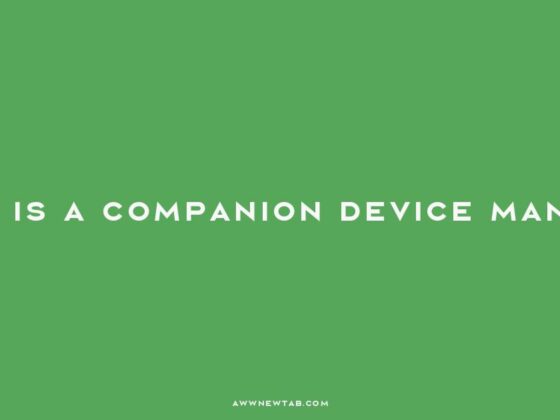How Old is the Chromebook? Exploring a Decade of Evolution and Its Enduring Appeal – Are you curious about the age of the beloved Chromebook? Join us on a journey through time as we explore the evolution of this innovative device over the past decade. From its humble beginnings to its enduring popularity, we’ll uncover why Chromebooks have captured the hearts of users across segments. So, fasten your seatbelts and get ready to dive into the fascinating world of Chromebooks. Get ready to discover just how old this tech marvel truly is!
A Decade of Evolution: The Chromebook Journey
The story of Chromebooks is a fascinating journey through the evolution of computing and the internet. It is a tale that begins with a simple idea: creating a laptop that is completely integrated with the web. This premise has seen Chromebooks grow from niche devices into powerful tools used in education, business, and personal computing.
Chromebook’s Humble Beginnings
Chromebooks made their debut over a decade ago, with Google unveiling this new class of computer at the Google I/O conference in May 2011. Acer Inc. and Samsung were the first to produce these devices, which started shipping to consumers on June 15, 2011. The concept was simple yet revolutionary: a laptop running a lightweight operating system centered around the Chrome browser, designed to be fast, secure, and connected to the cloud.
The Growth of the Chromebook Market
In the early years, the tech industry observed Chromebooks with a mix of curiosity and skepticism. However, by early 2013, notable players such as Lenovo and Hewlett-Packard, alongside Google itself, recognized the potential of Chromebooks and joined the market. This vote of confidence from heavyweight manufacturers signaled a shift in perception, reinforcing the Chromebook’s position in the computing landscape.
Understanding Chromebook’s Lifecycle
As with all technology, Chromebooks have a lifecycle. Initially, these devices had a support lifespan that would often cap at around 5 years. This meant that after five years, older Chromebooks, with their aging hardware, would cease to receive software updates, potentially affecting performance and security.
End of the Road for Older Chromebooks
For those owning a Chromebook that’s more than 5 years old, it’s common to encounter a notification stating the end of support. This is not just about the software updates; it’s about the synergy between the hardware capabilities and the evolving demands of modern software. Older components may struggle to keep up with the latest features and security measures, necessitating this cutoff.
A New Promise: A Decade of Support
In a move to address longevity and consumer trust, it has been announced that all Chromebooks will now benefit from a minimum support lifespan of a decade. This bold step ensures that users can enjoy their devices for longer, with peace of mind that their investment is protected against rapid obsolescence.
Why Chromebooks Have Endured
Despite the limitations of their early years, Chromebooks have not only endured but thrived. Let’s explore the reasons behind their staying power.
Designed for the Web
Chromebooks were conceived as gateways to the web, capitalizing on the emerging cloud-based services. Even today, with a plethora of devices available, Chromebooks stand out for their dedication to online functionality. They excel at providing seamless access to web services, many of which are also available on smartphones as apps.
Evolution Beyond the Browser
While Chromebooks started as essentially a Chrome browser in laptop form, they have evolved significantly. Today’s Chromebooks offer a full suite of features, from running Android apps to supporting Linux, expanding their capabilities far beyond the initial offering. This growth has helped Chromebooks become versatile tools suitable for a wide range of tasks.
Chromebook’s Appeal Across Segments
Chromebooks have found a sweet spot in several market segments, each with its unique requirements.
Education’s Favorite: Chromebooks in Schools
The education sector quickly adopted Chromebooks due to their affordability, ease of use, and robustness. The ability to manage devices centrally and the integration with educational apps and services like Google Classroom have made Chromebooks a mainstay in schools worldwide.
The Business Case for Chromebooks
In the business realm, Chromebooks offer a secure, manageable, and cost-effective solution for companies. They are ideal for employees who rely on web applications and cloud services to get their work done, providing a straightforward and distraction-free computing environment.
Personal Use: Simplicity Meets Productivity
For personal use, Chromebooks are appealing for their simplicity and reliability. They boot up quickly, are less prone to viruses than other operating systems, and offer a range of apps and extensions that cater to most everyday needs, from browsing and streaming to productivity and casual gaming.
Looking Ahead: The Future of Chromebooks
The Chromebook story is far from over. With a commitment to a decade of support and continuous innovation, the future looks bright for these devices.
Innovations and Developments
New models are constantly being developed, with improvements in hardware, battery life, and screen technology. Google and its manufacturing partners are also exploring new form factors, including detachable and tablet Chromebooks, to cater to a broader audience.
Chrome OS Flex: Breathing New Life into Old Hardware
Google’s recent announcement of Chrome OS Flex, a version of Chrome OS designed to be installed on older PCs and Macs, suggests a strategy to broaden the Chromebook experience. This move could extend the life of aging hardware and bring the benefits of Chrome OS to a wider user base.
Continued Adoption
The continued adoption of Chromebooks across various sectors indicates ongoing growth. As cloud computing becomes more ingrained in our daily lives, Chromebooks are poised to become even more integral to our digital experiences.
Conclusion
From their inception in 2011 to a future that promises even greater integration with the cloud, Chromebooks have come a long way. They have matured from simple internet-access devices to versatile, powerful computers that cater to educational, business, and personal needs. With a decade of support now in place, Chromebooks are set to continue their trajectory as an essential tool in the ever-evolving landscape of computing.
FAQ & Related Questions about Chromebook
Q: How old is Chromebook?
A: The first Chromebooks were announced in May 2011 and began shipping in June 2011.
Q: What happens to a Chromebook after 5 years?
A: Older Chromebooks may lose the ability to receive software updates after 5 years.
Q: Will all Chromebooks have a minimum support lifespan?
A: Yes, going forward, all Chromebooks will have a minimum support lifespan of a decade.
Q: How long is the end-of-life for Chromebooks?
A: Chromebook platforms will receive regular automatic updates for 10 years, which is longer than any other operating system commits to today.
Q: What efforts are being made to improve Chromebooks?
A: Google is working with partners to build Chromebooks with more post-consumer recycled materials (PCR) and rolling out new, power-efficient features and quicker repair processes.


